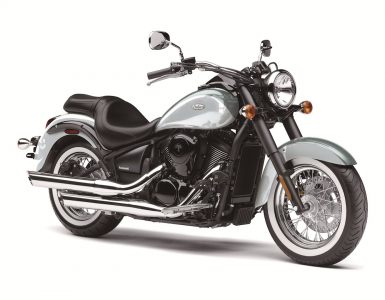Introduction
Motorcycles are not only thrilling modes of transportation but also significant investments. As a motorcycle enthusiast, whether you’re buying or selling, understanding the dynamics of motorcycle depreciation and resale value is crucial. Kelley Blue Book (KBB) is a trusted resource that can provide valuable insights into this aspect of the motorcycle market. In this comprehensive guide, we will delve deep into the world of motorcycle depreciation and resale value, using KBB as our primary reference.
KBB for Motorcycle Depreciation and Resale Value
Additional Reading:
1.Motorcycle Depreciation Basics
1.1 What is Motorcycle Depreciation?
Depreciation is the decrease in the value of a motorcycle over time. This reduction in value occurs due to various factors, making it essential to grasp the fundamental concept of motorcycle depreciation.
1.2 Factors Influencing Depreciation
Understanding the key factors that influence motorcycle depreciation is crucial. These factors include:
1.2.1 Age
Age is a primary determinant of depreciation. As motorcycles get older, they tend to lose value. However, the rate at which they depreciate can vary based on other factors.
1.2.2 Mileage
Similar to cars, mileage plays a significant role in motorcycle depreciation. Higher mileage typically results in a lower resale value, as it indicates greater wear and tear.
1.2.3 Brand and Model
The brand and model of a motorcycle have a substantial impact on depreciation. Well-known and reputable brands often retain their value better than lesser-known ones. Additionally, certain models may have higher resale values due to their popularity and demand.
1.2.4 Condition
The overall condition of a motorcycle is critical in determining its depreciation rate. Proper maintenance, minimal wear and tear, and a clean appearance can help preserve a motorcycle’s value.
2: The Role of KBB in Motorcycle Depreciation
2.1 Introduction to Kelley Blue Book (KBB)
Kelley Blue Book, commonly referred to as KBB, is a well-established online resource for researching vehicle values. While it is widely recognized for its information on cars, KBB also provides valuable insights into the motorcycle market.
2.2 KBB Motorcycle Valuation Tools
KBB offers several tools and resources to help individuals research motorcycle depreciation and resale values. These tools include:
2.2.1 Motorcycle Values
KBB’s Motorcycle Values section allows users to input specific details about their motorcycle, such as the make, model, year, mileage, and condition. KBB then provides an estimated value based on its extensive database and market analysis.
2.2.2 Trade-In Value
For those looking to trade in their motorcycle, KBB offers a Trade-In Value tool. This tool provides an estimate of how much a dealership is likely to offer for the motorcycle in its current condition.
2.2.3 Private Party Value
If you plan to sell your motorcycle privately, KBB’s Private Party Value tool provides an estimate of the price you can expect to receive from a private buyer.
2.2.4 Suggested Retail Value
KBB’s Suggested Retail Value tool is ideal for buyers. It provides an estimate of the price you should expect to pay for a specific motorcycle when purchasing from a dealership.
2.3 Using KBB for Motorcycle Depreciation Research
To effectively research motorcycle depreciation and resale value using KBB, follow these steps:
2.3.1 Gather Motorcycle Details
Collect all relevant information about your motorcycle, including its make, model, year, mileage, and condition. The more accurate the information, the more precise the valuation will be.
2.3.2 Visit KBB’s Website
Navigate to KBB’s website and access the Motorcycle Values section or the specific valuation tool that aligns with your needs, such as Trade-In Value, Private Party Value, or Suggested Retail Value.
2.3.3 Enter Motorcycle Information
Input the collected motorcycle details into the respective tool on KBB’s website. Be thorough and accurate in your data entry to ensure an accurate valuation.
2.3.4 Review the Valuation
KBB will provide an estimated value for your motorcycle based on the information you provided. Review the valuation carefully.
2.3.5 Consider Additional Factors
While KBB’s valuation is a valuable starting point, remember that other factors, such as market demand and regional variations, can affect the actual resale value. Use KBB’s valuation as a reference but remain open to negotiation and market dynamics.
3: Tips for Maximizing Motorcycle Resale Value
3.1 Maintain Your Motorcycle
Proper maintenance is essential for preserving your motorcycle’s value. Regularly servicing the bike, addressing minor repairs, and keeping it clean can significantly impact its resale value.
3.2 Document Maintenance Records
Maintaining detailed records of all maintenance and repair work can boost buyer confidence and justify a higher resale price. Include receipts, service history, and any upgrades or modifications made to the motorcycle.
3.3 Enhance Curb Appeal
Investing in cosmetic improvements can make your motorcycle more attractive to potential buyers. Simple upgrades like a fresh coat of paint or new handlebar grips can make a big difference.
3.4 Price Competitively
Research the current market conditions and prices for similar motorcycles in your area. Pricing your motorcycle competitively can attract more buyers and increase your chances of a quick sale.
3.5 Timing Matters
Consider the season and timing when selling your motorcycle. Spring and summer months often see higher demand, leading to potentially better resale prices.
3.6 Advertise Effectively
Create compelling online listings with high-quality photos and detailed descriptions. Highlight your motorcycle’s unique features and maintenance history to attract serious buyers.
3.7 Be Transparent
Honesty about your motorcycle’s condition, history, and any issues it may have is crucial. Building trust with potential buyers can lead to a smoother transaction.
4: Conclusion
In the world of motorcycles, understanding depreciation and resale value is essential for both buyers and sellers. KBB offers valuable tools and resources to research these aspects thoroughly. By considering factors like age, mileage, brand, and condition, and using KBB’s valuation tools, you can make informed decisions when buying or selling a motorcycle. Additionally, following the tips for maximizing resale value can help you get the best return on your investment. Whether you’re a seasoned rider or a first-time buyer, mastering motorcycle depreciation and resale value will enable you to navigate the market with confidence.






Add comment